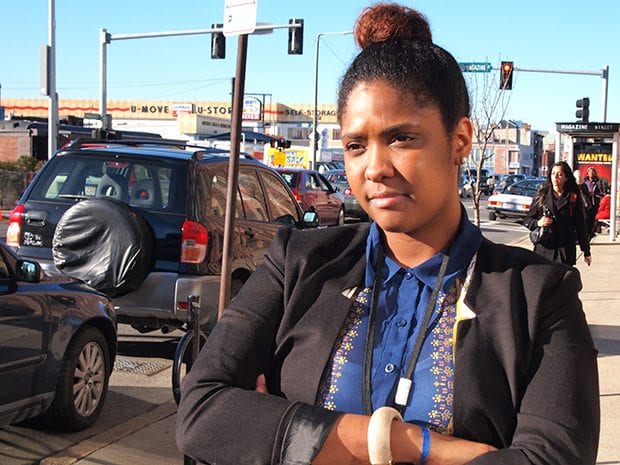
Yawu Miller
A controversial ruling by the Dominican Republic’s Constitutional Court to strip citizenship from people of Haitian descent born there has sent shockwaves through the Caribbean and in the Dominican and Haitian communities in the United States.
At the root of the court ruling, critics say, is a centuries-long effort by the Dominican ruling class to purge their country of its African history.
“This is an ugly legacy of the Dominican Republic,” says New York-based Dominican historian Luis Alvarez. “The ruling class really believes they are a white people.”
The ruling, handed down Sept. 23, has sparked outrage among Dominicans in the United States and Latin Americans around the world.
Peruvian novelist and one-time presidential candidate Mario Vargas Llosa penned an op-ed titled, “The Pariahs of the Caribbean,” denouncing the ruling in the Spanish Newspaper El Pais.
Dominican novelist and MIT professor Junot Diaz co-authored a scathing op-ed in the Los Angeles Times describing the Constitutional Court’s ruling as “an absurdity” along with Dominican novelist Julia Alvarez, Haitian American author Edwidge Danticat and U.S. born author Mark Kurlanski.
“Isn’t it time that the world tells the Dominican government that stripping people of their rights based on their ethnic background, setting up part of the citizenry for abuse and establishing an apartheid state is unacceptable?” the op-ed reads.
Members of the Massachusetts Congressional delegation joined other lawmakers representing constituencies of Caribbean descent in writing a letter to Dominican President Danilo Medina Sanchez urging him to “take all necessary steps to stay the tide of the denationalization campaign.”
Under the Dominican constitution, anyone born in the Dominican Republic is automatically a citizen. The Constitutional Court’s ruling would revoke citizenship to anyone born after 1929 to Haitian parents. The ruling — which could render as many as 250,000 people stateless — is the latest development in the Dominican Republic’s longstanding campaign against people of Haitian descent, a history many trace back to Haiti’s 1822 annexation of the country.
Over the last two centuries, Haitians have travelled back and fourth across the border with the Dominican Republic in search of labor on Dominican plantations. In 1937, in what was widely seen as the most violent display of anti-Haitian racism in the country’s history, Dominican dictator Raphael Trujillo ordered the massacre of Haitian migrant workers, giving orders that resulted in the slaughter of an estimated 20,000 people.
Trujillo’s successor, Joachin Balaguer promoted his own brand of “antihaitianismo,” railing against not only Haitians, but all people of discernible African descent, famously arguing against interracial marriage in one of his many books.
In the late ‘90s, the Dominican Republic seemed poised to enter a more enlightened era of race relations. After Balaguer stepped down under pressure from the international community in 1996, President Leonel Fernandez and his Partido de la Liberación Dominicana (Dominican Liberation Party) brought the country into the 21st century.
But while that party began as a socialist party, it has morphed into a more conservative party that is now advancing the interests of the racist ruling class, according to Luis Alvarez.
“They’ve become more conservative and more corrupt,” he says. “And they’ve tried to use race as some kind of nationalist campaign.”
In his book “Race and Politics in the Dominican Republic,” University of Colorado Ethnic Studies Professor Ernesto Salas argues that antihaitianismo serves the interests of the nation’s wealthy elite.
“From its origins as Hispanic racism, to its transformation into anti-Haitian nationalism, to its culmination as Trujillo’s state ideology, antihaitianismo has had one objective: the protection of powerful elite interests through the subjugation of the lower (and darker) sectors of the Dominican population,” he writes. “Antihaitianismo serves elite interests well and has even been accepted by the great majority of the Dominican people as part of their political culture, thereby institutionalizing and giving it the moral legitimacy that it lacks.”
Jean Ford Figaro, a health education coordinator at Boston Medical Center, attended medical school and practiced medicine in the Dominican Republic from 1998 through 2006 and says he encountered racism at all levels of Dominican society.
“You would find it in people who had money and in people who hadn’t even gone to school who think they are better than you,” he said. “I was a doctor, and still I feel as rejected. Now the level of hostility is even greater than when I was there.”
Figaro, who works with many in the Haitian and Dominican community in Boston, says that same racism is largely absent from the local community.
“Most of them think the court ruling is not good for the country,” he said.
On social media, Dominicans in the United States have been highly critical of the Constitutional Court, viewing the ruling as an embarrassment, says Kendra Lara, a Dorchester resident who was born in the U.S. and traveled between the Dominican Republic and the states until she was 12.
“Naturally your politics are going to change when you’re the marginalized demographic,” she says. “When you come here, you’re a person of color. You’re part of the same marginalized group as everyone else in your community.”
While Lara comes from what she describes as an Afro-Dominican family, some of her light-skinned second cousins in the Dominican Republic opined in favor of the court ruling on Facebook, arguing that Haitians are taking Dominicans’ jobs.
“It’s the same rhetoric you hear about immigration in the U.S.,” Lara says.







